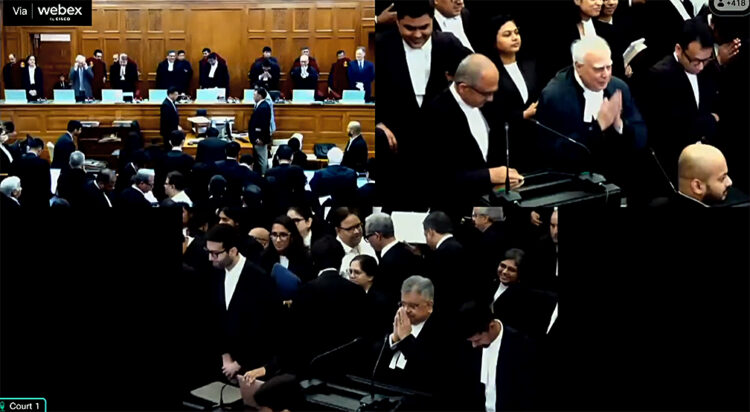In a significant development, the Supreme Court has directed the State Bank of India (SBI) to provide comprehensive details regarding electoral bonds purchased or redeemed after April 12, 2019, including their unique alphanumeric codes, to the Election Commission of India (ECI). The directive, issued on Monday by a five-judge Constitution Bench led by Chief Justice of India D Y Chandrachud, emphasized the need for complete transparency in electoral funding.
Expressing dissatisfaction over what it termed as “selective disclosure” by the bank, the Bench underlined the necessity for SBI to divulge all pertinent information, including alphanumeric codes and serial numbers of the bonds. This move aims to facilitate the identification of bond donors and recipients, enhancing transparency in political funding, a crucial aspect of democratic processes.
The court instructed SBI to file an affidavit by March 21, 5 pm, confirming compliance with the order. Additionally, it mandated the Chairman and Managing Director of SBI to affirm that all relevant details have been disclosed, leaving no room for ambiguity or omissions.
Moreover, the Bench reiterated its previous directives, emphasizing the submission of details pertaining to electoral bonds purchased since the interim order in April 2019. This includes specifics such as purchase dates, purchaser names, and bond denominations. The court clarified that SBI’s obligation extends to disclosing information on bonds encashed by political parties, ensuring accountability in electoral financing.
The ruling comes in the wake of the court’s decision on February 15, 2024, to annul the electoral bond scheme, signaling a broader scrutiny of political funding mechanisms. The court’s insistence on full disclosure underscores its commitment to upholding transparency and accountability in the electoral process.
Furthermore, the court directed the Election Commission to promptly upload the information provided by SBI, ensuring accessibility and public scrutiny. The move reflects a concerted effort to foster transparency and restore public trust in democratic institutions.
In response to the court’s directives, Senior Advocate Harish Salve, representing SBI, affirmed the bank’s readiness to provide all requisite information. He clarified that the bank’s adherence to privacy measures, as directed in previous orders, aimed to preserve anonymity and not withhold vital information.
While some argued for disclosure dating back to the inception of the bond scheme, the court maintained its stance, setting the cutoff at the April 12, 2019 interim order. This decision, it asserted, was a deliberate effort to balance transparency with practical considerations.
The court’s unequivocal stance on transparency in electoral funding signifies a pivotal step towards strengthening democratic principles and fostering public trust in the electoral process.

















Comments